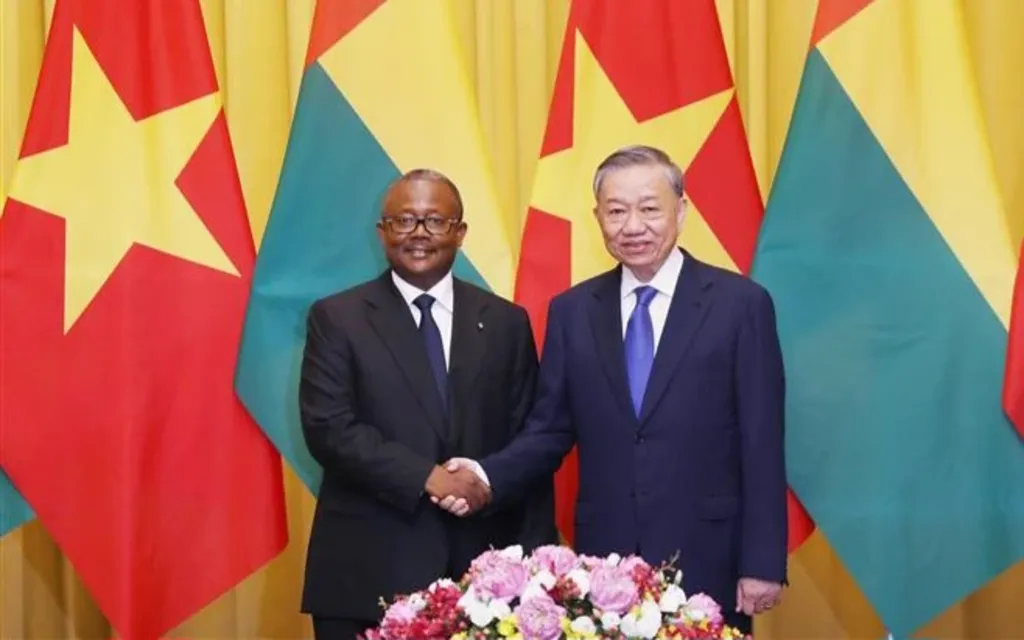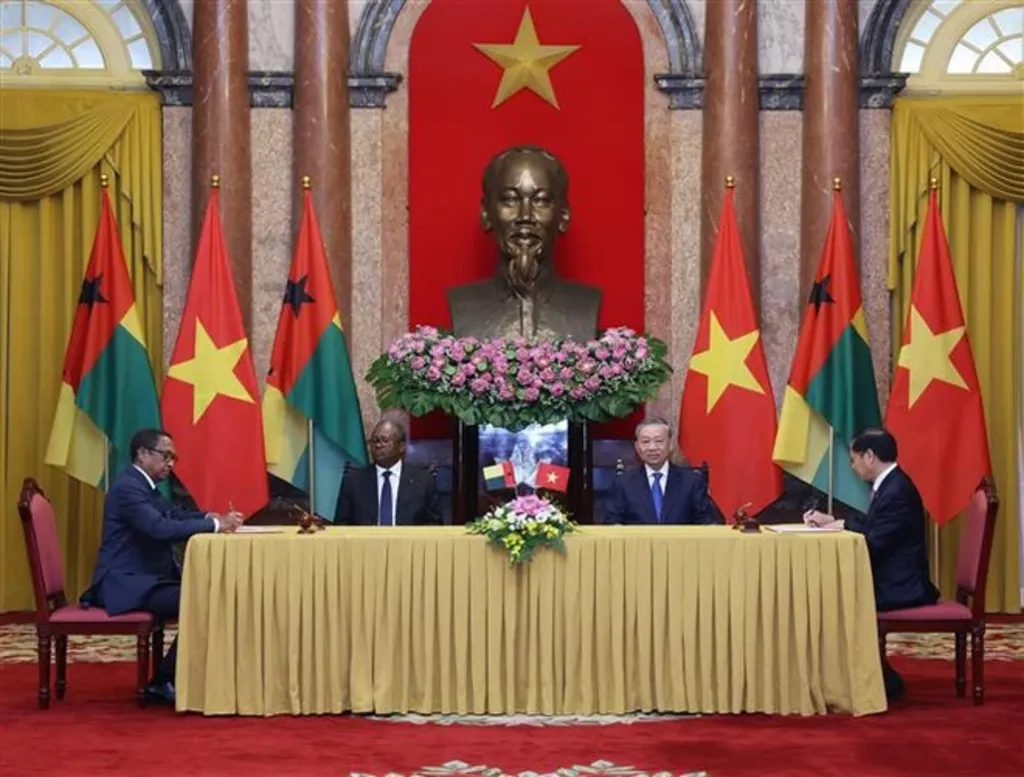 |
| Party General Secretary and President To Lam (R) and Guinea-Bissau President Umaro Sissoco Embaló__Photo: VNA |
Party General Secretary and President To Lam said the official visit by Guinea-Bissau President Umaro Sissoco Embaló, the first delegation exchange at the Head of State level between the two countries since they established diplomatic ties in 1973, will be a success, injecting a new impetus into bilateral friendship and cooperation.
At the talks with the Guinea-Bissau President in Hanoi on September 6, President Lam praised the Guinea-Bissau Government and people’s achievements in maintaining political stability, fostering national unity and reconciliation, and socio-economic development, as well as Guinea-Bissau's contributions to Africa’s overall progress.
President Embaló, in turn, expressed admiration for Vietnam's revolutionary journey, national construction and development, noting that this great cause and the country's outstanding leaders, such as President Ho Chi Minh and General Vo Nguyen Giap, have been a source of inspiration for the national liberation movements in Guinea-Bissau and Africa.
He revealed that a secondary school in Guinea-Bissau has been named after President Ho Chi Minh, underscoring Vietnam's status as a model for developing countries in Africa and Guinea-Bissau in particular.
Guinea-Bissau follows the policy of expanding cooperation with Asian countries, with Vietnam identified as a top priority partner, he said. He also expressed determination to develop bilateral traditional friendship for mutual benefit.
Both leaders expressed their delight at the positive outcomes of bilateral relations, especially as they celebrated the 50th anniversary of diplomatic ties last year.
They agreed to facilitate the exchange of all-level delegations to foster political trust and create new impetus for bilateral cooperation. A key step in this direction is the implementation of the Memorandum of Understanding (MoU) on establishing a political and diplomatic consultation mechanism between the two foreign ministries, which was signed during this visit.
In a noteworthy move, President Embaló announced visa exemption for holders of Vietnamese diplomatic and official passports and extended an invitation to President Lam to visit Guinea-Bissau, which was accepted with pleasure.
He vowed to work closely with Vietnam to bolster economic, trade and investment cooperation, leverage traditional products like cashew nuts, offer incentives to diversify export and import goods, and make it easier for business communities to explore opportunities in each other's markets.
 |
| At the MoU signing ceremony between the two foreign ministries__Photo: VNA |
With Vietnam being Guinea-Bissau's third largest trade partner, Embaló agreed with Lam’s proposal to expand cooperation in areas where Vietnam has strengths and Guinea-Bissau has needs, such as agriculture, policy-making experience, development models and management personnel training. The two sides also concurred to negotiate and sign documents to establish a legal framework to facilitate bilateral collaboration.
On global and regional issues of shared concern, they promised to offer mutual support at multilateral forums, particularly at the United Nations, the Non-Aligned Movement and the Group of 77 (G77). They also agreed to promote their respective cooperation within regional organizations of which they are members, such as ASEAN, the African Union (AU), and the Economic Community of West African States (ECOWAS), especially in priority areas like agriculture, education, healthcare and digital transformation.
Regarding the East Sea issue, they shared a common vision on the importance of ensuring security, safety, and freedom of navigation and overflight in the East Sea. They underlined their support for the peaceful settlement of disputes, in accordance with international law, including the 1982 United Nations Convention on the Law of the Sea (UNCLOS).
Following the talks, they witnessed the signing of an MoU on the establishment of a political and diplomatic consultation mechanism between the two foreign ministries and another on agricultural cooperation between the two ministries of agriculture and rural development.- (VNA/VLLF)









